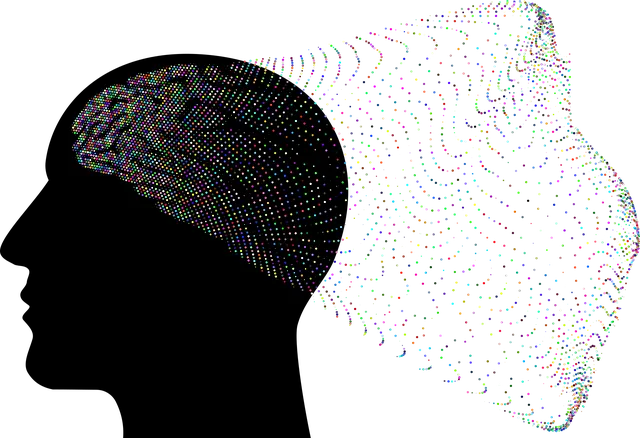The Kaiser Permanente Mental Health Access Center in Colorado Springs offers tailored programs addressing local mental health needs through community engagement and education. Their successful campaigns leverage online platforms and traditional media to promote services, reduce stigma, and encourage self-care practices, measured by data-driven impact assessments. As a standout example, the center demonstrates the importance of aligning interventions with cultural dynamics for effective public mental health awareness.
Public awareness campaigns play a pivotal role in improving mental health outcomes. This article explores strategies for developing impactful initiatives, using the Kaiser Permanente Mental Health Access Center in Colorado Springs as a case study. We delve into understanding community needs, designing effective campaigns, leveraging technology and traditional media, and measuring success. By examining these aspects, we aim to provide valuable insights for enhancing mental health awareness through evidence-based practices, specifically focusing on the Kaiser Permanente mental health access center Colorado Springs model.
- Understanding Community Needs: Kaiser Permanente Mental Health Access Center in Colorado Springs as a Case Study
- Designing Effective Public Awareness Campaigns for Mental Health
- Leveraging Technology and Traditional Media to Reach a Wider Audience
- Measuring Success and Continuous Improvement Strategies for Mental Health Awareness Initiatives
Understanding Community Needs: Kaiser Permanente Mental Health Access Center in Colorado Springs as a Case Study

The Kaiser Permanente Mental Health Access Center in Colorado Springs serves as a compelling case study for understanding community needs and tailoring public awareness campaigns effectively. By assessing local demographics, cultural nuances, and prevalent mental health challenges, the center has customized its services to resonate deeply with the community. For instance, programs aimed at Anxiety Relief and Mood Management have been met with significant success due to their sensitive approach, acknowledging the unique stressors faced by Colorado Springs residents.
This focused strategy extends to promoting Self-Care Practices, ensuring that awareness campaigns not only educate but also empower individuals to take proactive measures for their mental well-being. The center’s community engagement initiatives, including workshops, support groups, and accessible online resources, have fostered an inclusive environment where open conversations about mental health are encouraged. This holistic approach demonstrates the importance of tailoring interventions to align with the specific needs and cultural context of the target population, ultimately enhancing campaign effectiveness.
Designing Effective Public Awareness Campaigns for Mental Health

Designing effective public awareness campaigns for mental health requires a deep understanding of the target audience and the unique challenges they face. At the Kaiser Permanente Mental Health Access Center in Colorado Springs, experts emphasize the importance of tailoring messages to resonate with diverse communities. This involves creating accessible and engaging content that addresses common misconceptions about mental illness while promoting essential services like therapy, support groups, and self-care resources.
Mental health awareness campaigns must go beyond simply informing the public; they should foster a culture of care and resilience. Incorporating strategies such as stress management techniques, mindfulness exercises, and storytelling can help normalize conversations around mental well-being. By combining evidence-based practices with compelling narratives, these programs can encourage early intervention, reduce stigma, and ultimately improve access to quality mental health services like those offered at the Kaiser Permanente Mental Health Access Center in Colorado Springs.
Leveraging Technology and Traditional Media to Reach a Wider Audience

In today’s digital era, leveraging technology and traditional media is paramount for effective public awareness campaigns, especially when highlighting critical issues like mental health access. The Kaiser Permanente Mental Health Access Center in Colorado Springs has successfully utilized online platforms to reach a vast audience, ensuring that valuable resources are accessible to those beyond the center’s physical boundaries. By employing social media, email newsletters, and interactive websites, they can share essential information on Burnout Prevention Strategies for Healthcare Providers and Mental Health Education Programs Design, empowering individuals with knowledge and tools to support their mental well-being.
This multi-faceted approach complements traditional media outlets like local newspapers, radio stations, and community events, fostering a comprehensive strategy. For instance, featuring Mindfulness Meditation techniques in print media and during live broadcasts can introduce simple yet effective practices that folks can incorporate into their daily routines. This combination ensures that the message resonates with diverse audiences, encouraging open conversations about mental health and promoting accessible solutions, such as those offered by Kaiser Permanente’s Colorado Springs center.
Measuring Success and Continuous Improvement Strategies for Mental Health Awareness Initiatives

Measuring the success of mental health awareness initiatives is a crucial step to ensure their long-term impact and effectiveness. Organizations like Kaiser Permanente’s Mental Health Access Center in Colorado Springs play a vital role in evaluating these campaigns. By setting clear goals and utilizing robust data collection methods, such as pre-and post-campaign surveys, they can assess changes in public knowledge, attitudes, and behaviors related to mental health. For instance, tracking the number of individuals seeking mental health services or participating in Stress Management Workshops Organization programs post-campaign can demonstrate direct improvements.
To foster continuous improvement, these centers often employ adaptive strategies based on gathered insights. This may involve refining messaging for specific demographics, tailoring interventions to address unique community needs, and enhancing existing Community Outreach Program Implementations. By adopting a data-driven approach, mental health awareness initiatives can evolve to better resonate with their target audiences, ultimately leading to more meaningful impacts on the well-being of individuals within the community.
Public awareness campaigns play a pivotal role in addressing mental health issues within communities, as exemplified by the successful initiatives at the Kaiser Permanente Mental Health Access Center in Colorado Springs. By understanding local needs and leveraging diverse media channels, these campaigns can effectively reach and support those struggling with mental health challenges. Continuous improvement through measurement and feedback ensures that awareness efforts remain relevant and impactful. The strategies outlined in this article provide a roadmap for creating comprehensive public awareness campaigns, ultimately fostering better mental well-being across communities, including the Kaiser Permanente mental health access center Colorado Springs and beyond.






